ICC Champions Trophy 2025: A Hybrid Model for India-Pakistan Matches
The ICC Champions Trophy 2025, scheduled to begin on February 19, promises to be a historic event in cricketing history, not only because of the competition it will showcase but also due to the innovative hybrid model that the International Cricket Council (ICC) has devised to address geopolitical tensions. With Pakistan set to host the tournament, a breakthrough has been achieved in resolving India’s refusal to play in the host nation—a decision that could have jeopardized the entire event. Instead, the ICC’s hybrid model allows for a unique solution where India’s matches will be held at a neutral venue. This model represents a significant shift in managing bilateral and multilateral cricket tournaments between India and Pakistan.
Geopolitical Tensions and Cricket
India and Pakistan share one of the most intense rivalries in cricket, a reflection of their complex political history. However, this rivalry has often been overshadowed by off-field tensions, resulting in the two nations rarely playing bilateral series. While both countries have met in ICC tournaments and Asia Cups, the prospect of India traveling to Pakistan, or vice versa, has often been a contentious issue.
The 2025 ICC Champions Trophy is the latest chapter in this saga. India’s outright refusal to travel to Pakistan for the tournament due to security and political concerns posed a significant challenge. To maintain the integrity of the tournament and ensure participation from all teams, the ICC’s hybrid model was introduced, offering a middle ground.
The Hybrid Model: How It Works
Under the hybrid model, India’s matches in the eight-team Champions Trophy will be hosted at a neutral venue, yet to be determined. This arrangement ensures that India’s participation in the tournament is not compromised while respecting their reluctance to travel to Pakistan. Similarly, in a reciprocal arrangement, Pakistan’s matches in ICC tournaments hosted by India will also take place at neutral venues. This agreement spans the 2024-2027 ICC event cycle and includes high-profile tournaments such as:
- The 2025 Women’s ODI World Cup in India
- The 2026 Men’s T20 World Cup in India and Sri Lanka
Looking further ahead, the model could also apply to the 2028 Women’s T20 World Cup, awarded to Pakistan. The flexibility of the hybrid model allows cricket’s governing body to navigate sensitive political terrains while ensuring uninterrupted cricketing action.
Choosing Neutral Venues
The selection of neutral venues is a critical component of the hybrid model’s success. While the ICC has left the decision to the tournament’s host board, the proposed venue must be approved by the ICC. For India’s matches in the Champions Trophy, potential venues could include the UAE, Oman, or Sri Lanka, all of which have a proven track record of hosting high-profile cricket tournaments.
Similarly, for Pakistan’s matches in ICC events hosted by India, venues such as the UAE or Malaysia could come into play. The ICC’s emphasis on fairness and logistical feasibility will be key in these decisions.
Implications for India-Pakistan Cricket
The hybrid model represents both a compromise and an opportunity. For fans, it ensures that the iconic India-Pakistan rivalry continues to be a feature of ICC events, even if not on home soil. For the cricketing boards, it provides a framework to navigate future tournaments without risking withdrawals or boycotts.
Moreover, the ICC has indicated that it does not oppose tri-nation or quadrangular T20I tournaments involving India and Pakistan at neutral venues. This could pave the way for exciting cricketing contests featuring other Asian teams, potentially compensating Pakistan for the loss of hosting India’s matches in the Champions Trophy. Such tournaments would not only serve as high-octane cricketing spectacles but also foster goodwill among participating nations.
Challenges Ahead
While the hybrid model addresses immediate concerns, it is not without challenges. Logistical complexities, such as coordinating travel, security, and scheduling across multiple venues, could pose difficulties. Additionally, the financial implications of hosting matches at neutral venues may impact the host boards’ revenues. For fans in India and Pakistan, the inability to watch their teams play at home against their biggest rivals may be a source of disappointment.
Furthermore, the hybrid model may set a precedent for future tournaments, potentially complicating efforts to resolve long-standing disputes between cricketing boards. Critics argue that this approach may perpetuate the status quo rather than encouraging dialogue and resolution.
A New Era for ICC Tournaments
The ICC Champions Trophy 2025 will mark a turning point in the administration of international cricket. By prioritizing inclusivity and flexibility, the ICC has demonstrated its commitment to ensuring that cricket remains a global unifier, even in the face of geopolitical challenges. For Pakistan, hosting the Champions Trophy is a significant milestone, showcasing its ability to host major international events despite historical setbacks. For India, the neutral venue arrangement allows the team to focus on cricket while navigating sensitive political issues.
As the tournament draws closer, cricket fans worldwide will eagerly await the unveiling of the tournament schedule and the announcement of neutral venues. While the hybrid model may not fully satisfy all stakeholders, it ensures that the spirit of the game prevails, offering a solution that prioritizes the sport’s global appeal over regional disputes.
The ICC Champions Trophy 2025 will be remembered not just for the cricket it delivers but for the innovative solutions it brings to one of the sport’s most enduring challenges. By adopting a hybrid model, the ICC has ensured that India and Pakistan’s participation in the tournament remains intact, preserving the sanctity of the event and the excitement of the rivalry. As cricket evolves to navigate a complex geopolitical landscape, this model may serve as a blueprint for future tournaments, emphasizing adaptability and collaboration in the face of adversity.
Also Read: 3 Indian batsmen who have scored the most runs in the Champions Trophy
Disclaimer
Possible11 is a sports news and analysis platform designed purely for entertainment and educational purposes. All match previews, player insights, and team analyses are based on publicly available information and expert opinions. We do not promote or support betting, gambling, or real-money gaming in any form. Users are encouraged to enjoy our content responsibly and use it for informational purposes only.









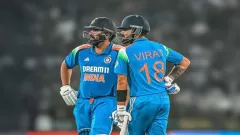




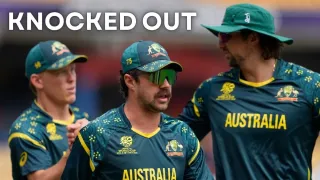


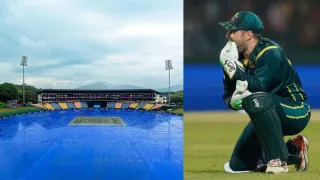

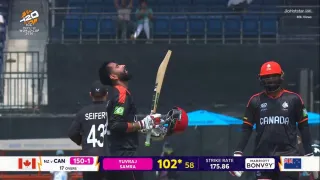
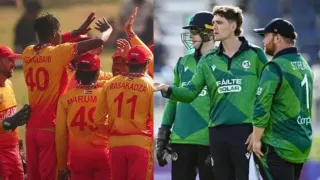

Give Your Feedback